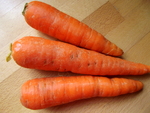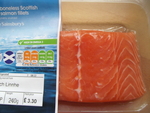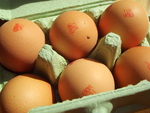





Good digestion is crucial to our day-to-day energy levels, and to our longer term nutritional status. We should ideally be able to eat well and widely, cooking from scratch, using fresh, healthy ingredients. This is a cornerstone of good health and disease resistance.
When our system works well, we take it for granted, but when it misbehaves, life can be very uncomfortable. I see conditions ranging from bloating and irritable bowel syndrome (IBS), through to Crohn’s disease and colitis. Some patients have singled out foods which aggravate their symptoms, whilst others are clear that stress or anxiety are unhelpful.
If you come for treatment for a digestive problem, I will ask all about your diet and eating patterns, in addition to the detailed symptoms you have. I shall also be interested to hear whether you have identified any aggravating factors. As usual, we will go on to look at your health more widely, so that I can build an overall picture of you.
Particularly with IBS, I attach importance to the gut biome, and so I shall have this in mind when interviewing you. For example, common medications can be unhelpful here. You may have been prescribed several courses of antibiotics over a relatively short period of time. These can harm beneficial bacteria and upset the balance of our digestive system. Another common group of drugs, the proton pump inhibitors such as omeprazole, can have an even greater effect than antibiotics, and are frequently taken for much longer. They can deplete beneficial bacteria and increase potentially harmful ones.
Please do call me to discuss your situation or to arrange an appointment. Below you can read the results of some of the research which has been undertaken into acupuncture for digestive problems. The trials vary in quality, but systematic reviews and randomised controlled trials are generally considered to provide the highest quality evidence. If you would like to read more about evidence quality, I would refer you to the British Acupuncture Council’s description of the evidence pyramid.

 A team at Botucatu Medical School, São Paulo State University, Brazil has demonstrated that acupuncture can significantly reduce the incidence of post-operative nausea in patients undergoing hysterectomy. A total of 97 patients were randomly allocated to receive either acupuncture or no acupuncture as a control. All patients received two standard drugs preventatively, in case of the occurrence of nausea and vomiting. Acupuncture was given at the point Neiguan bilaterally for 30 minutes pre-operatively.
A team at Botucatu Medical School, São Paulo State University, Brazil has demonstrated that acupuncture can significantly reduce the incidence of post-operative nausea in patients undergoing hysterectomy. A total of 97 patients were randomly allocated to receive either acupuncture or no acupuncture as a control. All patients received two standard drugs preventatively, in case of the occurrence of nausea and vomiting. Acupuncture was given at the point Neiguan bilaterally for 30 minutes pre-operatively. An American randomised trial studying acupuncture for postoperative nausea, has shown that children receiving the treatment alongside anti-sickness medication, are less likely to experience symptoms. A total of 161 children aged 3 to 9 and undergoing tonsillectomy, were randomised to receive either acupuncture plus antiemetic drugs, or antiemetics alone. Acupuncture consisted of needling the well-known point Neiguan on each wrist.
An American randomised trial studying acupuncture for postoperative nausea, has shown that children receiving the treatment alongside anti-sickness medication, are less likely to experience symptoms. A total of 161 children aged 3 to 9 and undergoing tonsillectomy, were randomised to receive either acupuncture plus antiemetic drugs, or antiemetics alone. Acupuncture consisted of needling the well-known point Neiguan on each wrist. A pilot study undertaken in Korea suggests acupuncture can offer clinically meaningful improvements in functional constipation (constipation not due to IBS or other diseases). Thirty patients with the condition, mean age 50, were randomised to receive either real acupuncture or sham acupuncture in a university hospital setting. The sham sessions consisted of 12 shallow needle insertions at non-acupuncture points. Patients received twelve treatment sessions over four weeks.
A pilot study undertaken in Korea suggests acupuncture can offer clinically meaningful improvements in functional constipation (constipation not due to IBS or other diseases). Thirty patients with the condition, mean age 50, were randomised to receive either real acupuncture or sham acupuncture in a university hospital setting. The sham sessions consisted of 12 shallow needle insertions at non-acupuncture points. Patients received twelve treatment sessions over four weeks.